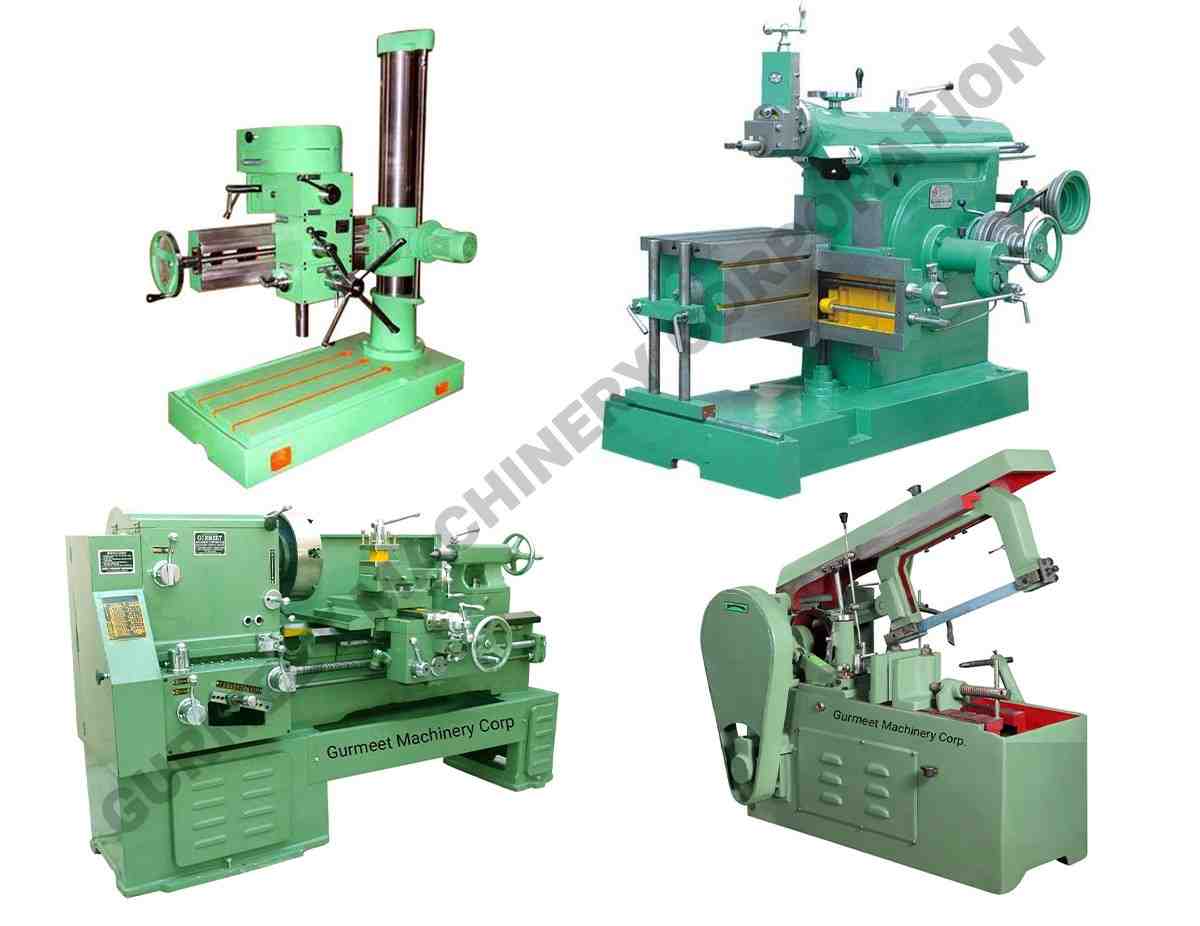Workshop machines play a pivotal role in the manufacturing and metalworking industries, providing the precision, efficiency, and versatility needed to shape raw materials into finished products. These machines have revolutionized production processes, enabling industries to meet the growing demands of quality and quantity. From all geared lathe machines to vertical turning lathe machines, workshop machines offer specialized solutions for a wide range of applications. This article delves into the different types of workshop machines, highlighting their significance and primary applications.
Understanding Workshop Machines
Workshop machines are mechanical devices designed to perform tasks such as cutting, shaping, drilling, grinding, and pressing materials. They are commonly used in workshops, factories, and industrial setups for manufacturing components and tools. The efficiency and accuracy of workshop machines have made them indispensable in sectors such as automotive, aerospace, construction, and metal fabrication.
These machines can be broadly categorized into different types based on their functions:
- Lathe Machines Lathe machines are one of the most versatile and widely used workshop machines. They rotate a workpiece around an axis, allowing operations like cutting, sanding, drilling, and turning to be performed with precision. Among them, all geared lathe machines are particularly notable for their advanced features and robust construction. These machines use gear mechanisms to adjust the speed and torque, making them ideal for heavy-duty and intricate machining tasks.
- Milling Machines Milling machines are used to remove material from a workpiece using rotary cutters. These machines are ideal for crafting intricate shapes, cutting slots, and drilling holes. Modern CNC (Computer Numerical Control) milling machines have taken this technology to new heights, offering unparalleled precision and automation.
- Drilling Machines Drilling machines are designed to create precise holes in various materials. They vary from basic handheld devices to advanced industrial drilling systems. Multi-spindle drilling machines enable the simultaneous drilling of multiple holes, significantly enhancing productivity.
- Grinding Machines Grinding machines are essential for finishing and polishing surfaces. They use abrasive wheels to remove material, achieve smooth finishes, and ensure dimensional accuracy. These machines are widely used in tool-making and surface preparation applications.
- Power hacksaw machines are specialized tools designed to efficiently and accurately cut through metal in workshop settings. They are equipped with a reciprocating blade that slices through metal efficiently, making them indispensable for cutting tasks in fabrication workshops.
- Hydraulic Press Machines Hydraulic press machines are used to shape and compress materials using hydraulic pressure. They are commonly employed in applications like forging, molding, and metal forming, where high force is required to manipulate the material.
- Vertical Turning Lathe Machines The vertical turning lathe machine is another essential workshop machine, especially for machining large and heavy workpieces. Unlike conventional lathes, the workpiece in a vertical turning lathe is mounted vertically, making it easier to handle larger components. These machines are widely used in industries requiring heavy-duty machining operations.
Importance of Workshop Machines
Workshop machines are integral to industrial growth and technological advancements. Their importance can be summarized as follows:
- Precision and Accuracy Modern workshop machines are designed to achieve high levels of precision and accuracy, which is crucial for producing components that meet stringent quality standards. This is especially crucial in sectors such as aerospace and automotive, where precise tolerances are required.
- Efficiency and Productivity Workshop machines enable faster production processes, reducing lead times and increasing overall productivity. For instance, all geared lathe machines and CNC milling machines can handle complex operations quickly and efficiently.
- Versatility The versatility of workshop machines allows manufacturers to perform a variety of tasks, from simple cutting and shaping to intricate machining and finishing. This flexibility is crucial for addressing a wide range of production needs.
- Enhanced Cost Efficiency: Workshop machines help cut down labor expenses and reduce material waste by automating manual tasks. They offer a budget-friendly option for companies aiming to enhance their efficiency.
- Safety Advanced workshop machines come with safety features that protect operators from accidents and injuries. Features like automatic shut-off, overload protection, and ergonomic designs contribute to a safer working environment.
Applications of Workshop Machines
Workshop machines are used across a wide range of industries and applications. Some key examples include:
- Automotive Industry: Manufacturing engine components, chassis parts, and transmission systems.
- Aerospace Industry: Producing precision parts for aircraft and spacecraft.
- Construction Industry: Fabricating structural components, tools, and machinery parts.
- Metal Fabrication: Creating custom metal parts and structures for various applications.
Machines like the all geared lathe machine and the vertical turning lathe machine are particularly favored in these industries for their reliability and performance.
Key Factors to Consider When Choosing Workshop Machines
Selecting the right workshop machine depends on several factors:
- Type of Operation: Determine the specific tasks the machine will perform, such as turning, milling, or pressing.
- Material Type: Consider the type and hardness of the material to be machined.
- Production Volume: Choose machines that match your production requirements, whether it’s a small batch or mass production.
- Precision Requirements: Opt for machines with high precision capabilities for applications requiring tight tolerances.
- Budget: Balance cost with functionality and durability to ensure a good return on investment.
Conclusion
Workshop machines serve as the foundation of manufacturing and metalworking industries. From basic operations to complex machining tasks, these machines have transformed how industries operate. Machines like the all geared lathe machine and vertical turning lathe machine exemplify the innovation and reliability that define modern workshop equipment. As technology continues to advance, the future of workshop machines promises even greater precision, efficiency, and sustainability. Investing in the right workshop machines is not just a necessity but a strategic move for businesses aiming to stay competitive in today’s dynamic industrial landscape.

Comments on “Workshop Machines: The Backbone of Manufacturing and Metalworking”